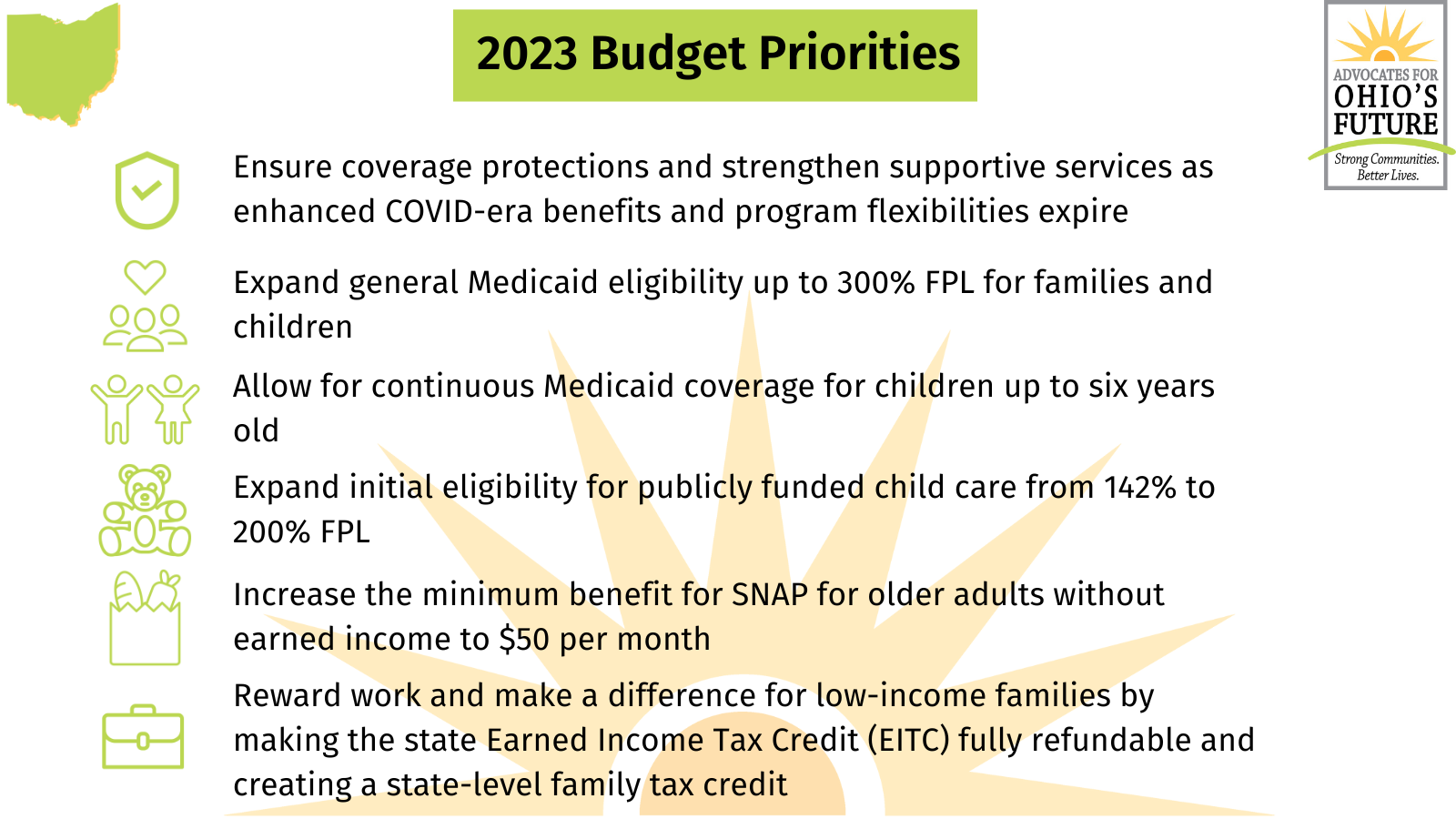by: Sarah Hudacek, AOF Policy Associate
Budget Priority: Ensure coverage protections and strengthen supportive services as enhanced COVID-era benefits and program flexibilities expire
As we’ve shared in many newsletters and blogs over the past 18 months, AOF has kept a close eye on temporary pandemic-related program expansions and flexibilities, especially Medicaid continuous coverage and SNAP Emergency Allotments. With the final SNAP Emergency Allotment issued at the end of February and Medicaid terminations beginning next month, Ohioans and their families will be faced with an average SNAP benefit loss of $90 per person per month, and with finding new health insurance if they are no longer eligible for Medicaid.
AOF has long been advocating for investments in a number of areas to prepare for the COVID Cliff - when these temporary pandemic programs end in short succession. It’s not too late to bolster services to support Ohioans facing these cliffs.
Among the proposals that AOF supports adding to this budget are:
$50 million per fiscal year to help the Ohio Association of Foodbanks meet the increased need at food banks and pantries across the state with the end of SNAP emergency allotments
$5 million for Get Covered Ohio’s in-person health insurance enrollment assisters, who will continue to provide free help to Ohioans navigating the Medicaid eligibility renewal process over the next 15 months of unwinding
$21 million per fiscal year to provide a $50 state-supplemented minimum SNAP benefit to all Ohioans age 60 and up, as proposed by the Ohio Association of Foodbanks. The current federally-funded SNAP minimum benefit is just $23 per month.
Up to $350 million per fiscal year to provide free school breakfast and lunches to all students in Ohio, an initiative led by the Hunger Free Schools Ohio Coalition. School meals were free during the height of the pandemic, and school meal debts have accumulated to record numbers in many school districts and school meal participation is down across the board.
Each of these proposals would support vital local services across the state and help Ohioans survive the changes that are quickly coming down the pike.


